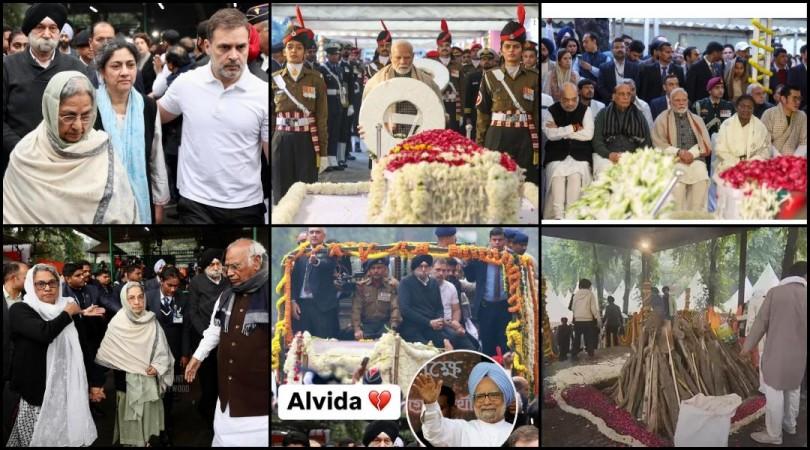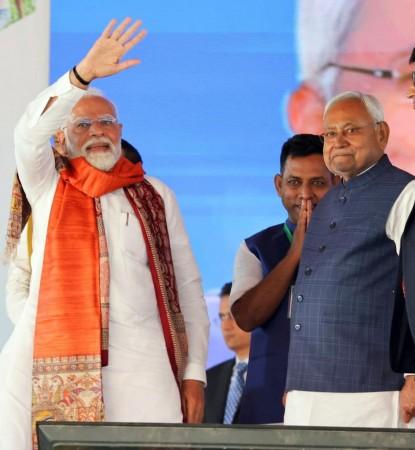
In a recent political clash, the Bharatiya Janata Party (BJP) has launched a counteroffensive against Congress leader Rahul Gandhi following his "surrender" remark aimed at Prime Minister Narendra Modi. The controversy began when Rahul Gandhi accused PM Modi of yielding to foreign pressure, a claim that has been met with strong rebuttals from the BJP. Central to the BJP's counterattack is a decades-old letter written by former Prime Minister Jawaharlal Nehru, which BJP MP Nishikant Dubey has brought to the forefront to challenge Gandhi's assertions.
Dubey took to social media to highlight a letter written by Nehru to the Chinese Premier on January 1, 1963, in the aftermath of India's defeat in the 1962 war with China. Dubey's post read: "Do you know what surrender looks like, Rahul Baba? This is surrender. This is a letter from January 1963, written by your revered grandfather -- Jawaharlal Nehru -- after India's defeat in the 1962 war with China."
The BJP MP shared excerpts from the letter, which he claimed demonstrated a submissive tone, suggesting that Nehru was ready to concede to Chinese demands following the territorial losses India suffered during the conflict.
According to Dubey, the letter detailed how China had occupied 20,000 square kilometers of Indian territory in the east and 6,000 square kilometers in the west, and had taken 4,000 Indian soldiers hostage. He further alleged that Nehru had sent the Sri Lankan Prime Minister as a mediator for surrender and was awaiting China's instructions.
The letter, as quoted by Dubey, stated: "This new proposal is worse than your three-point proposal inasmuch as it seeks to exclude the Indian armed forces from the entire area of Indian territory subjected to this latest aggression since 8th September, 1962 -- that is, from Indian territory of over 20,000 square kilometres in the Eastern sector and over 6,000 square kilometres in the Western sector... Surely, the officials of the two sides can hardly discuss and reach agreements on such matters as withdrawal arrangements... if they have no clear direction from their Governments regarding the line with reference to which the disengagement of the armed forces... is to be arranged."

BJP's counterattack
BJP national spokesperson Sudhanshu Trivedi fueled the debate by accusing the Congress party of having a long history of surrenders, which he claimed Gandhi is attempting to deflect through baseless statements.
Trivedi remarked, "If you want to understand what real surrender is, remember Rahul Gandhi -- just two years ago, you went abroad and said: 'Why are the defenders of democracy, America and Europe, silent and not interfering in India?' That was surrender."
Trivedi also cited several instances where he accused previous Congress governments of weakening India's strategic position. He referenced Rahul Gandhi's past statements, such as his 2011 remark that "It's impossible to totally control terrorism," which Trivedi interpreted as a surrender in the face of terror. He also pointed to the Congress government's response following the 26/11 attacks, where they stated that composite dialogue would not be affected by terrorist incidents, labeling it as a surrender to a terrorist mentality.
The controversy stems from Rahul Gandhi's criticism of PM Modi, where he accused the Prime Minister of compromising India's interests under foreign pressure. Gandhi's remarks were made in the context of Modi's interactions with former US President Donald Trump, where Gandhi alleged that Modi surrendered without hesitation when Trump called. To contrast the BJP's alleged history of capitulation, Gandhi cited the 1971 war under the leadership of then Prime Minister Indira Gandhi, when India defied US pressure and achieved a decisive victory that led to the creation of Bangladesh.

















